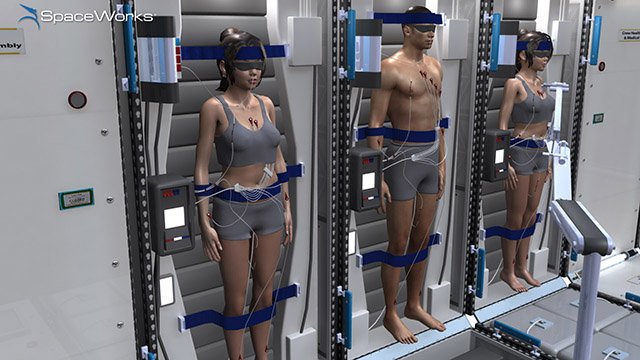
Recently I was watching the movie “Passengers” starring Chris Pratt and Jennifer Lawrence. They were travelling to a different star system which takes them 90 years to reach it. For that purpose, everyone on board was in hibernation pods to sleep their way throughout their journey.
This is what we have seen in science fiction movies whenever there is an issue of maintaining human survival during very long journeys through space. The humans are put into a state of hibernation by freezing their bodies to preserve any biological degradation that naturally happens.
This has been the stuff of science fiction and in the real world, has been used in a very limited manner and that too for preserving single organs like the heart. Even then, the current technology is such that it cannot preservation properly and as a result, many of these organs have to be discarded because they were simply not preserved for long enough.
Advancements in science and technology will soon change that however and we will be able to use that tech in the medicine field as well as for deep space exploration missions in the future.
How Does It Work?
The process of preserving tissues is called cryopreservation which is done by literally freezing organs and tissues at very low temperatures. As I mentioned above, we have been using it for organ transplants to preserve the donator’s organs.
The problem however is when the organs or tissues have to be brought back to normal temperatures for transplant. The freezing can form ice crystals within the tissues which can ruin them.
This also poses a problem for any human hibernation for deep space travel. When the travellers will be ready to be woken up after a hibernation period, it is vital that all their organs and tissues function well upon awakening.
But a new breakthrough might change all of that. Scientists have used a new technique to successfully preserve human and animal tissues and then rewarm them without causing any damage. For this they made use of nanoparticles to heat the tissues at an equal rate.
Though promising, this tech can only be used for organ preservation right now that will drastically improve the preservation time but there is nothing stopping it to be scaled up for the preservation of whole bodies.
Similar News

Image Credits: Spaceworks
So, it will still take time for cryogenics to be able to put humans in stasis for long periods of space travel but there is another method that is being researched upon by a different team that shows a lot of promise.
A company called Spaceworks, is exploring the idea of “therapeutic hypothermia” in which the body is not frozen but kept just below the normal body temperature of 37 degree Celsius. This method is already used in medicine to keep a patient suffering from brain injuries alive for at least 2-4 days which gives doctors more time to deal with the issues.
But Spaceworks wants to adapt this method for human hibernation for use in space exploration. It’s no doubt that as time passes, we will be making more and more manned missions to many different planets, asteroids and moons in the future. So, it is vital that we come up with a technology like this to spare space travellers from a lot of physical and mental trauma.
The proposed method from Spaceworks will make use of open chambers where several travellers could be under stasis at once unlike the individual pods as shown in movies. Robotic arms and monitoring systems will also have to be developed to take care of these hibernating travellers.
According to their method, the travellers will be fitted with transnasal tubes that will take care of the cooling and heating processes. Also, since some of the people will be required to take care of the spaceship as well, different sets of people can go into hibernation in shifts. It will be like going to bed, only much longer.
According to reports, animal testing is poised to begin next year with human testing soon after that possibly on the International Space Station.
Image Credits 1
OK, but would you volunteer to test this? Sounds a little bit scary.... :O
Pretty interesting, though.
Downvoting a post can decrease pending rewards and make it less visible. Common reasons:
Submit
No, I definitely would not! :D
Downvoting a post can decrease pending rewards and make it less visible. Common reasons:
Submit
I consider your signature as "parasite".
Please keep it simple ;)
Downvoting a post can decrease pending rewards and make it less visible. Common reasons:
Submit
Apologies, removed. Peace.
Downvoting a post can decrease pending rewards and make it less visible. Common reasons:
Submit
Thanks
Downvoting a post can decrease pending rewards and make it less visible. Common reasons:
Submit